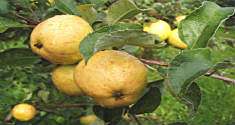Research prevents eco-fraud

In recent years, the growing demand for organic food products has led to the faking of food and fraud. Headed by the Faculty of Science, University of Copenhagen, a European research project will now develop methods capable of both determining the geographical origin of a food product and deciding whether or not it is organic.
Today, many organic food products such as olive oil, coffee and wine are sold at a higher price because of the production methods involved, their special geographical origins or the absence of undesirable compounds.
Recently there have been several instances of falsification and fraud where conventionally grown produce has been sold as organic. This calls for tools capable of tracing the origins and cultivation methods of food products.
New analysis methods check origins and production methods
AuthenticFood is a new European research project headed by researchers from the Faculty of Science, University of Copenhagen.
The research project brings together leading experts from 11 European countries to develop reliable analysis methods which can both determine the geographical origins of food products and whether or not they are organic:
"Nowadays, consumers are very interested in the origins of food products and if they are what they claim to be, e.g. whether they are organic. Responsible food producers are therefore extremely keen to ensure that consumers can trust their products," says Project Manager and Professor Søren Husted from the University of Copenhagen. He continues:
"Our results will undoubtedly increase the credibility of organic production and thus prevent future eco-scams."
Great help for food authorities all over Europe
By analysing the chemical composition of fruits and vegetables, the researchers can, among other things, trace differences between conventional and organic growing methods.
In the laboratory, any use of pesticides can be traced and the geographical differences in soil characteristics also leave fingerprints which can be measured on the food by the researchers.
According to the researchers, the analytical tools to be developed by the research project may be used by food authorities at both a national and a European level during the coming years.
Funded by CORE Organic II, the project will run for the next three years as a part of the FP7 ERA-NET project: "Coordination of European Transnational Research in Organic Food and Farming Systems". The project has 16 partners from 11 EU countries.
The project budget totals approx. DKK 8 million, and participants come from leading research institutions in Europe which are all involved in analysing and certifying the authenticity of food products in terms of raw ingredients, geographical origins and production methods.
Facts: Organic vs. conventional foods
Conventional and organic food products differ in several ways which can be measured by analysing the chemical composition of fruits and vegetables.
A number of specific requirements have to be met in organic farming. Farmers are, e.g., not allowed to use pesticides, which is clearly evident from the metabolome, i.e. the plant's total content of chemical compounds.
Only organic fertilisers such as domestic animal manure, compost and green manure may be added to organically grown fruits and vegetables, and this source of fertiliser can also be traced in the plant's composition of stable isotopes.
The geographical origins of food products can be measured chemically.
If, for example, you grow vegetables 50 km south of Copenhagen, you will find that the soil there has its own mineralogical composition, and the plants growing there have fingerprints quite unique to that particular area.
Via analyses, the researchers are thus able to determine how the plants are produced, organically or conventionally, and where they were grown.
More information: www.coreorganic2.org/
















